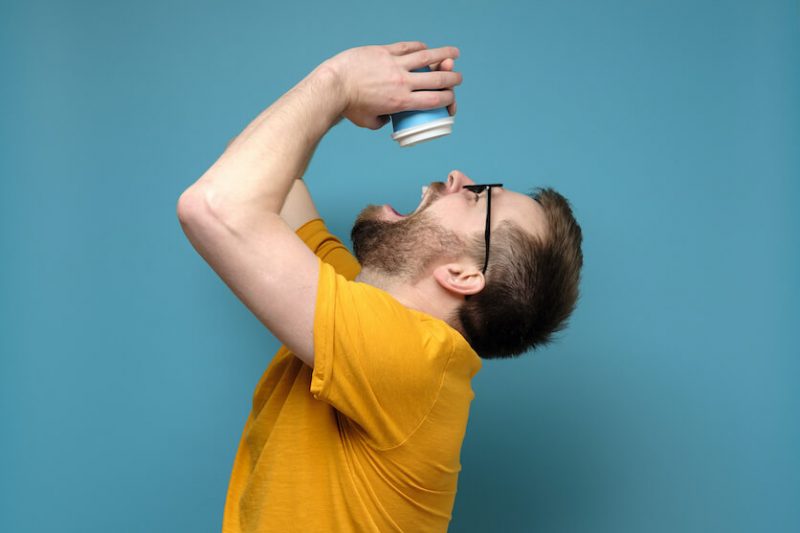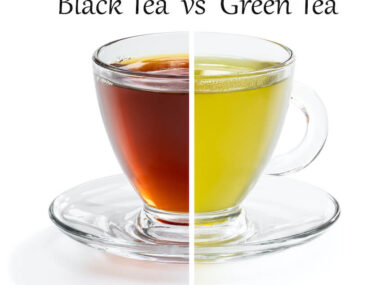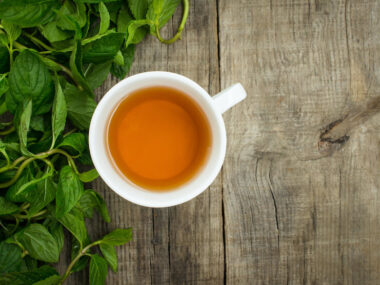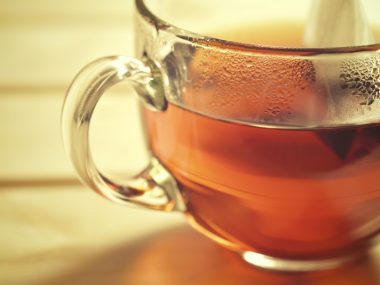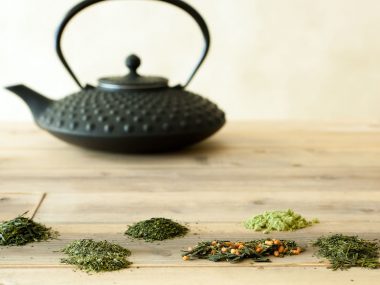We never give much thought to whether or not our favorite beverage may be hindering us when it comes to keeping ourselves replenished and hydrated. That glass of iced tea we keep chugging away at on a hot summer day may not be what our body is crying out for.
Table of Contents
Does Tea Hydrate Or Dehydrate Us?
It’s natural for those of us who drink tea to assume that we are keeping ourselves hydrated because of the water content in tea. Unfortunately, that assumption is present in the minds of many people who not only drink tea but soda (colas, diet colas, etc. ) beer, wine, and other liquid-based beverages and may not always be fully correct. Overall, tea is more hydrating than any other type of processed drink. But hydration rates vary depending on the variety and content.
How do we know which beverages (including tea) are beneficial in keeping our bodies replenished with the fluids they require?
What Is Dehydration?
Dehydration is not merely the sensation of feeling thirsty or having a mouth full of cotton. Dehydration is a serious condition and, in some aspects, similar to a floating iceberg. We only see the top (tip) of the iceberg, and it’s human instinct to rely heavily on that which we can see. However, there’s a whole lot more beneath the surface that we can’t see or don’t know about. Sadly, those who end up with dehydration end up hospitalized and confused about how they became dehydrated.
That chilly beverage we desire to quench our thirst after exercising or as a way to cool off on a hot day is the tip of the “iceberg.” As much as we want to grab an iced down can or bottle of beer or diet cola or a dripping glass of iced tea, we need to stop and think.
Let’s consider what happens to our body once we finish that drink? Now we will look at that which lurks beneath the surface, where we are forced to examine the part of the hidden iceberg under the water.
Dehydration can render a person extremely ill or, even worse, be fatal. The majority of our body is made of water. The H.H. Mitchell, Journal of Biological Chemistry 158 breaks down how much water accounts for various parts of our body. Our lungs are about 83% water, with muscles and kidneys following at 79%. The water in our heart is about 73%, skin is 64%, and bones are 31%.
As you can see, water and fluids are vital for us to be healthy and alive. Our bodies carry waste that has been filtered through the blood system, organs, and kidneys down and out via urination. We sweat to stay cool, which also depletes our body fluids. A host of other activities and functions also lead to fluid depletion.
What Causes Dehydration?
Because we are made up of mostly water, that water is used when exercising or sweating. Other things can also cause us to lose fluids, such as taking diuretics (water pills,) laxatives, drinking diuretic beverages, vomiting, diarrhea, diabetes, and if we get burned.
As we dive deeper, we find that dehydration is an action that occurs when cells within our body begin to shrink. This shrinkage signals the brain that something is wrong. If we have too much water within those cells, our brain receives a signal that we need to get rid of the extra water.
There’s one of two things that our cells tell our brain, and in turn, our brain communicates to the body;
- The body needs more water, so we feel a sense of thirst and drink more water.
- The body has too much water on board, so we urinate to balance out our fluids.
What Are The Symptoms Of Dehydration?
The most common symptom of dehydration is feeling thirsty. We may have a dry mouth or feel an urgent need to drink.
Other symptoms may include:
- Dry mouth
- Moodiness
- Cognitive altering or impairment
- Lack of concentration
- Loss of short-term memory
- Fatigue
- Confusion
- Constipation
- Delirium
- Headache
- Muscle cramping
- Tenting of skin
- Death
Dehydration may also contribute to or cause certain conditions such as:
- Obesity
- DVT (deep vein thrombosis)
- UTI (urinary tract infection)
- Gallstones
- Kidney disease
- Orthostatic high blood pressure
- Respiratory disorders
- Poor dental health
- High blood pressure
- Stroke
- Heart disorders
So, now we know what dehydration is and what causes it. Let’s go further down beneath the surface where the biggest part of the iceberg hides quietly and examine the quality of our fluid intake.
What Liquids Dehydrate You?
Believe it or not, some drinks we enjoy don’t hydrate but dehydrate us. Just because it’s liquid doesn’t mean it’s beneficial or hydrating.
The drinks below are dehydrating because they act as a diuretic (causing cell shrinkage and signaling our brain to tell our body to urinate.)
Drinks That Dehydrate
- Some Tisanes (herbal teas) that contain diuretic herbs
- Dandelion
- Juniper
- Parsley
- Hibiscus
- Caraway
- Peppergrass
- Fennel
- Elderberry
- Alcoholic Beverages
- Beer
- Ale
- Cocktails
- Wine
- Spritzers
- Wine Coolers
- Liqueurs
- Sugary Drinks
- Soda (cola, diet colas)
- Some flavored sparkling waters
- Juices
Tea and Its Relation To Dehydration
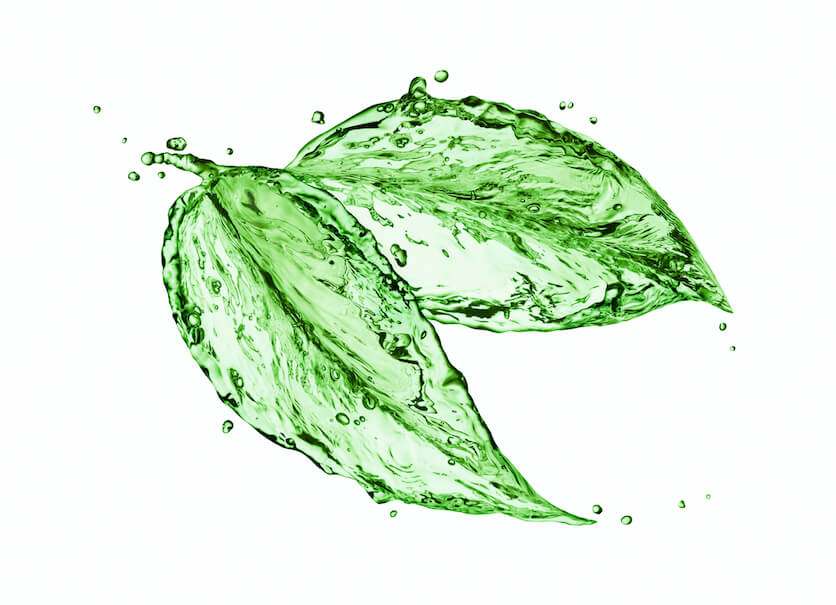
You’ll find widespread mentions that tea (black, green, oolong, yellow, and white) and coffee cause dehydration because of the caffeine in both. However, there’s evidence-based information from various research studies that mention tea being safe to consume without fear of dehydration. Tea does have mild diuretic activity. However, brewing time, the type of tea, certain medical conditions, and medications all play a vital role in how tea is metabolized.
Caffeine’s Role In Hydration And Dehydration
Caffeine is a constituent in tea that we want to closely look at and how it relates to dehydration. Caffeine is a methylxanthine which is a compound that causes the usual side effects of caffeine (alertness, energy, etc.) Large doses of caffeine (over the recommended intake) also cause diuresis (excessive urine output.)
Tea As It Pertains To Regular Tea Drinkers
A research study (Caffeine ingestion and fluid balance: a review) mentions that individuals who have a tolerance for caffeine (regular tea drinkers) experience very few symptoms (including dehydration) as compared to someone who doesn’t usually drink tea. If such a person were to consume a large amount of caffeinated tea, their body would experience excessive urination for a short time.
Furthermore, the study states that someone who regularly drinks a caffeinated beverage (tea) would not “experience fluid loss in excess of the volume ingested” or “reduce their intake.”
Occasional Tea Drinkers And Those With Medical Conditions
Those who don’t regularly enjoy tea or have medical conditions, or taking medications are far more susceptible to the dehydrating effects of caffeine in tea. Because there’s no tolerance built up to caffeine, when caffeine is ingested, the brain and body react differently than those who do enjoy tea regularly.
Does Iced Tea Dehydrate You?
Regardless of the ice and the tea being water-based, the caffeine in the tea may be dehydrating for those who fall into the following groups:
- Smokers
- Pregnant women
- Those taking certain medications for; contraception, high blood pressure, edema, heart failure, liver failure, and kidney disease (medications include lithium and thiazides)
- Obese individuals
- Diabetics; especially those with diabetes insipidus
The above are the conclusions of an article on caffeine diuresis (increased/excessive urination) published in the American Journal of Physiology: Renal Physiology.
Does Tea Count As Water Intake?
We don’t have the medical expertise to provide advice or recommendations on what is or isn’t acceptable or safe for fluid/water intake. We can provide you with evidence-based data in the mentioned research studies to help guide you.
Tea should never replace water in those individuals we mentioned above. For those who don’t fall into the above group and who regularly drink tea, consuming tea without sugar or any of the previously mentioned diuretic herbs can enjoy tea as a partial means of fluid intake.
So, is tea hydrating enough for regular tea drinkers?
Tea drinkers should stay within the recommended daily intake of no more than 400 mg of caffeine which is about 6-8 (six-ounce cups) per day. The recommended daily intake of water is about 8-12 cups (2-3 liters) per day. As you can see, relying on a daily consumption of tea within the recommended daily caffeine intake leaves you short of water by about 4 cups.
Water is best when it comes to the intake of fluids. However, many find water to be boring and far less palatable than tea. Most of us know that we would be more prone to get our water by drinking tea while also enjoying glasses of water throughout the day.
Adequate Means Of Hydration: Go or No-Go?
Now that we know how caffeine, tea, and water all tie in with dehydration, making a wise choice based on your unique individual needs and situation comes next.
